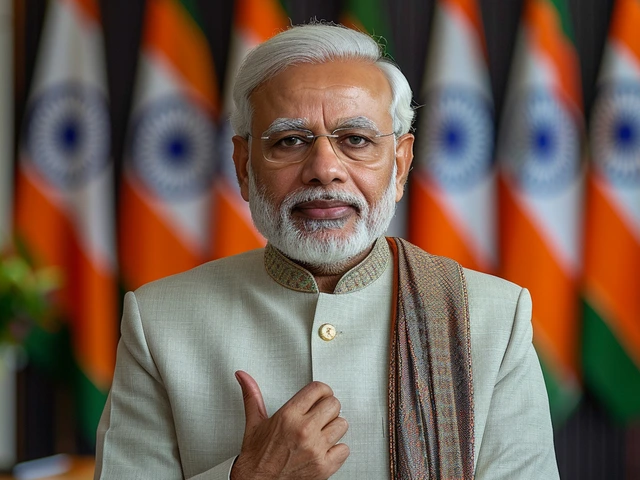
The Hidden Costs of Mandating Minimum Wage
A Comprehensive Analysis
The debate over minimum wage laws is one that has persisted for years, and while many see it as a way to ensure fair pay for all, others argue that it comes with hidden costs that can ultimately hurt the most vulnerable workers. Azu Ishiekwene, a prominent commentator, provides a nuanced critique of minimum wage laws, particularly through the lens of the Nigerian workforce. According to Ishiekwene, raising the minimum wage might seem like a noble endeavor, but it can inadvertently cause more harm than good, especially for low-skilled and vulnerable workers.
One of the fundamental arguments against minimum wage laws is that they can distort the labor market. When wages are artificially raised by law, employers may have to make tough decisions. Instead of hiring low-skilled workers, they might opt for more skilled individuals who can justify the higher wages through higher productivity. In a country like Nigeria, where only one in ten workers are in high-skilled jobs, this can be particularly devastating. The majority of the workforce operates in the informal sector, lacking the qualifications and skills to demand higher pay. Consequently, raising the minimum wage could reduce employment opportunities for these workers, pushing them further into economic precarity.
Ishiekwene suggests that alternative approaches like Earned Income Tax Credits (EITC) or conditional cash transfers might provide better outcomes. These solutions aim to supplement the income of low-wage workers without distorting the labor market. Several African countries have adopted such measures with varying degrees of success. For instance, conditional cash transfers, which provide financial assistance to low-income families contingent upon certain behaviors like children's school attendance or health check-ups, have shown promise in reducing poverty and improving social outcomes.
Another noteworthy point Ishiekwene makes is the potential for minimum wage laws to lead to higher prices. When employers are required to pay higher wages, they often pass on the increased costs to consumers. This can result in inflationary pressures, making goods and services more expensive for everyone, including the very workers the laws aim to help. For low-income families, higher prices for essentials like food and housing can negate the benefits of higher wages, trapping them in a cycle of poverty.
Job opportunities for young people and marginalized groups can also be adversely affected by minimum wage mandates. Employers with limited budgets might avoid hiring young or inexperienced workers, as well as individuals with disabilities, because they cannot justify the cost under the new wage laws. This could exacerbate unemployment and underemployment issues, depriving these groups of valuable work experience and income.
Economists like Paul Krugman and Joseph Stiglitz have often argued in favor of minimum wage laws, suggesting that they are essential for reducing income inequality and promoting social mobility. While these goals are undoubtedly important, Ishiekwene counters that market forces and fair competition can ensure fair wages without government intervention. He points to the example of Margaret Thatcher, who reformed Britain's economy by limiting union power and fostering a competitive market environment. Although Britain saw significant economic growth during Thatcher's tenure, Ishiekwene cautions that the country has since lost its competitive edge, suggesting that a balanced approach is necessary.
It's also important to consider the broader economic context when discussing minimum wage laws. In developing economies like Nigeria, where the informal sector plays a significant role, the ripple effects of wage mandates can be profound. Policies that work in highly industrialized nations may not translate well to economies with different structures and challenges.
Moreover, the focus on minimum wage laws can sometimes distract from other critical issues that affect workers' well-being. Access to quality education, healthcare, and social services are essential components of economic development. Addressing these issues can help equip workers with the skills they need to secure better-paying jobs, reducing the need for wage mandates.
In conclusion, while minimum wage laws are designed with good intentions, they can have unintended consequences that undermine their goals. Azu Ishiekwene's arguments highlight the need for a more nuanced approach to labor policy, one that considers the diverse realities of different economies and seeks to balance the interests of all stakeholders. Alternative solutions like EITC and conditional cash transfers offer promise, and a focus on broader social and economic reforms can help create a more equitable and prosperous society.
10 Comments
Write a comment
More Articles

Curaçao Makes History as Smallest Nation Ever to Qualify for FIFA World Cup
Curaçao, population 165,000, became the smallest nation ever to qualify for the FIFA World Cup after an unbeaten CONCACAF campaign, earning a spot in the 2026 tournament hosted by the U.S., Canada, and Mexico.

BJP Eyes Historic Win in 2024 Lok Sabha: Can They Cross the 400-Seat Mark?
The 2024 Lok Sabha election votes are being counted today, and the BJP led by Prime Minister Narendra Modi is expected to win by a landslide, echoing Congress' historic 1984 win. Their slogan 'abki baar, 400 paar' highlights the possibility of surpassing 400 seats, with exit polls pointing to a significant majority. Key battlegrounds include the Hindi heartland, South India, and Bengal.

Zenith Bank Makes a Bold Move with Paris Branch Opening Amid Celebrations
Zenith Bank inaugurated a new branch in Paris, setting the stage for expanded financial ties between Africa and Europe. Attended by prominent Nigerian figures and business leaders, this move highlights Nigeria's strategic role in Africa-Europe trade. This branch will serve as a conduit for investment and trade, with plans to further expand into Francophone Africa.
priya sharma
June 6, 2024 AT 20:53The exposition delineates multifaceted externalities engendered by statutory wage floors, foregrounding the elasticity of labor demand within heterogeneous market structures. Empirical meta‑analysis underscores a negative correlation coefficient between minimum wage increments and employment elasticity among low‑skill cohorts, particularly within developing economies characterized by pronounced informality ratios. Moreover, the fiscal ramifications extend to macro‑inflationary vectors, wherein cost‑push dynamics precipitate price index augmentation for basic consumption baskets. The discourse further integrates comparative policy frameworks, juxtaposing conditional cash transfer mechanisms against prescriptive wage mandates, thereby elucidating potential substitution effects. From a human capital perspective, augmenting earnings without concomitant upskilling may engender a Pareto‑inefficient allocation of labor resources. In addition, sectoral analysis reveals that labor‑intensive industries exhibit heightened sensitivity to marginal wage adjustments, often resulting in throughput reductions or capital substitution. The synthesis also contemplates welfare calculus, factoring in consumer surplus depreciation relative to nominal wage gains. Crucially, the heterogeneity of labor market segmentation necessitates calibrated interventions, eschewing monolithic statutory prescriptions. Policy prescriptions thus advocate for targeted tax credits and expenditure‑based subsidies, calibrated to household income thresholds, to ameliorate adverse distributional impacts. Finally, longitudinal studies suggest that endogenous productivity growth, spurred by skill acquisition incentives, yields more sustainable wage convergence than exogenous price controls. In sum, the integrative approach advocated herein emphasizes structural reforms, labor market flexibilization, and fiscal targeting to mitigate the latent externalities of minimum wage legislations.